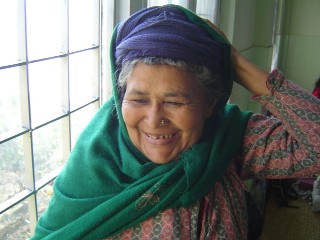Genital Prolapse
A genital prolapse is a downward or forward displacement of one of the pelvic organs from its normal location in females. Traditionally, prolapse has referred to displacement of the urinary bladder, the uterus or the rectum.
In Nepal, it is estimated that over 25 % women in rural areas are suffering from some degree of utero-vaginal prolapse (UVP). UVP is a problem where the genital organs along with the urinary bladder and the rectum come out from their original position. They have miserable, degraded life with genital prolapse. They have no sexual life for years due to prolapse. Their husbands desert them. Coital difficulties with the third-degree uterine prolapse and procedentia are obvious. A major degree of prolapse prevents penetration into the vagina. Husband brings in another wife basically for sex and going for other alternative ways of finding sex; falling prey to the commercial sex workers or having extramarital affairs. There are many heart-breaking stories.
 Prolapse is a curable condition and surgery is the mainstay of
treatment.
Prolapse is a curable condition and surgery is the mainstay of
treatment.
The maternal mortality ratio (MMR) of Nepal is one of the highest in the world and the fertility rate is also very high (4.1 births per woman in 1998-2000. Maternal death is 539 per 100,000 live births. Antenatal care, postnatal care and institutional deliveries are not common in Nepal. Less than one in ten births takes place in a health facility.
There is a wide gap between urban and rural areas in educational attainment, health facilities, transportation and communication facilities, and economic status. And women are always on the lower level in every aspect. Rural women have more than twice as many children (4.4) as urban women (2.1). The same applies to uneducated women. Marriage is almost universal in Nepal. The median age at marriage is 16.1 years for the women and rural women getting married one year earlier than the urban ones. The median age at first birth is about 20 years and one in five adolescent women age 15-19 are already mothers or pregnant with their first child. The Nepal Family Health survey of 1996 indicates that 92% of all women deliver at home. The chances of Nepalese women suffering pregnancy complications are very high and consequently this risk increases as these women undergo multiple pregnancies during their reproductive age.
Women in Nepal are generally less educated than men. Women in rural areas lack the financial means, adequate food, housing, health care, educational facilities, social status. Mostly they are exploited and excluded ones. Husbands in Nepal have a greater say in decision-making than wives. Usually the husband alone has a final say in their health care.
Justification:
Majority of women with prolapse in Nepal cannot make use of surgical services concentrated in or near large urban centers. There are no surgical services in the rural areas where the patients having prolapse reside and they cannot afford to go to Hospitals in the cities for economic reasons. This is why there is need for managing their problem of prolapse in the rural settings by organizing surgical camps.
Purpose:
An important contribution will be made to the ruined lives of women with genital prolapse in rural areas of the eastern hills of Nepal by providing surgical remedy for their problem at or near their home at no expenses. In addition, preventive measures for the prolapse and awareness about it will be an important focus during the camp period. Data of the patients with prolapse will be obtained in the selected remote districts and the major causes for the occurrence of prolapse will be identified.
Dr. Ganesh Dangal
gareshma![]() hotmail.com
hotmail.com
Kathmandu Model Hospital
Telephone (Voice): 00977-1-5526523, 00977-1-2040350
For more information, see Managing Genital Prolapse in Women of Rural Nepal
or contact
ANMF.
If you wish to make a contribution to Kathmandu Model Hospital, please go to Donate and specify that your donation is targeted to Kathmandu Model Hospital.
Thank you!